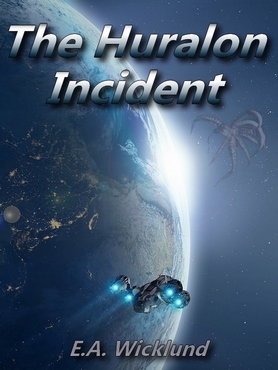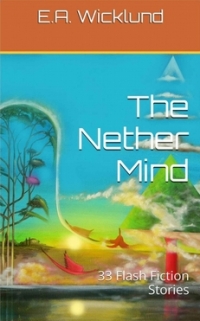
Twenty years before, Henare and Matiu’s tribe found the alien teleportal. The two Maori warriors entered it, and since then they’d journeyed to 48 alien planets. They missed home, but Time Dilation* spoiled their homecoming.
“I miss Rongo’s roasted Moa*,” said Henare.
“Ah!” smiled Matiu. “Arorangi made that wonderful sauce to dip it in!”
Back on Earth, the jungles were gone. They found a modern concrete jungle.
Many of the people they stopped didn’t even speak Te Reo Māori*. The one fellow who did tried to sell them a watch. He told them the Moa had died out. The Hast’s Eagles* they feared in their native land were extinct.
Henare said, “Remember those huge roasted grubs on Ephrenimus VII?”
“They were great!” grinned Matiu. “And that spicy sauce! That’s why Ephrenimus was our home base for years.”
Henare turned back to the gate to the stars. “Let’s just go back home.”
__________________________
Written for What Pegman Saw: https://whatpegmansaw.com/2017/04/15/christchurch-new-zealand/
Author’s Notes:
I had to do some research for this one.
Maori: The native peoples of New Zealand: https://en.wikipedia.org/wiki/Māori_people
*Te Reo Māori: The language of the Maori
This story uses actual Maori names. I got them here: https://www.huggies.co.nz/parenting/parents-and-children/maori-baby-names
*Moa: Giant flightless birds native to New Zealand. Now extinct.
*Hast’s Eagle: A giant eagle that preyed upon the Moa. Reportedly able to carry small children away. Now extinct.
*Time Dilation: A difference in the time passed on Earth and the time for someone traveling away from Earth. When traveling a distance from Earth, the closer to the speed of light one moves, the more Time Dilation is experienced. Less time passes for the traveler. Even satellites experience a certain amount of Time Dilation. The heroes of this story experienced hundreds of years of difference. https://en.wikipedia.org/wiki/Time_dilation
This is a song, “Go Back Home” by Stephen Stills (from CSN). It tells a similar story and includes an awesome guitar lead by Eric Clapton.


































This is a great use of the prompt. Nice job!
LikeLiked by 1 person
Thanks very much! 🙂
LikeLike
Cool story! The reasons for the Moa disappearing have been long debated, but these days the consensus is clear. They were delicious…
LikeLiked by 1 person
Thanks Matthew! I was hoping you would see this one. From what I’ve read, it was human predation and perhaps a changing climate. Certainly in the Americas the combination of climate change and human hyperpredators spelled the end of megafauna. And considering that chicken and turkey taste so good, I imagine a Moa would taste fabulous! 😉
LikeLiked by 1 person
The pattern was identical here – and as in the US and Europe, the role of humans in the destruction of megafauna has been debated just as ferociously. It’s a bit different in some ways because the European and US megafauna also dwindled with the climate change at the end of the last ice age, whereas New Zealand’s survived until just after humans arrived in the last millennium. But realising that humans actually did the destruction has been difficult. When the first ovens and piles of moa bones were found by river-mouths in the 19th century, early paleontologists insisted Maori (who have excellent systems for conservation of resources) couldn’t have done it. Other studies have tried to point the finger at environmental pressures – even to over-predation by Haast’s Eagle. Since then there has been a huge push to ‘prove’ that humans couldn’t have done it, even down to a ‘politically correct’ display in the national museum, Te Papa Tongarewa in the late 1990s, showing an eagle dealing to a moa and not even mentioning human intrusion. I kept having digs at it in various books of mine and it’s been changed since (though not thanks to me – they don’t listen to me…)
The reality was that New Zealand’s ecosystem had been stable for hundreds of thousands of years and the whole lot fell over quickly when humans arrived (from East Polynesia) around 1280 AD. That made NZ the last large habitable land mass on the planet ever touched by humans. And within a few years most of the forests had gone along with the fauna. Not all moa were eaten – burning out the forests also hit their populations, along with those of other birds. But a lot were devoured, and the hunters typically snacked on moa eggs along the way, knocking back the breeding population. Some estimates suggest it only took a generation, maybe two. The thing was that NZ was literally the lost world – a relic of Gondwanaland still with the dinosaur population that had survived the K-T event (birds!), no land mammals other than a bat, and the original Cretaceous-era temperate jungle. So in the ‘natural vs human intervention’ argument here, there was a bit of ‘nature’, but rather a lot of ‘human’.
LikeLiked by 1 person
That makes a lot of sense. Some call humans “super-predators” but I would call humans “Hyper-predators.” We’re really, really too good at killing off our prey and simultaneously wiping out fellow predators who challenge us for resources. The Moa had no effective defenses against humans.
I wonder if several other large prey animals had existed alongside the Moa, then maybe the Moa might have survived. They simply weren’t smart enough, fast enough, smart enough to survive human predation on their own. Ostriches survived in Africa, but they’re bloody fast and not easy to catch. Lots of other prey existed as an alternative so I think that took the pressure of the Ostrich.
LikeLiked by 1 person
I also wrote about the Maori. Glad you chose to write about them yourself.
LikeLiked by 1 person
Thank you! I look forward to reading yours.
LikeLike
The Kiwis may not be able to eat Moa anymore, but they do enjoy their “fush nd chups” 😀
LikeLiked by 1 person
Hehe. At least there’s something to eat. I’d love to get some “fush nd chups” down there. And I could be happy there’s no Hast’s Eagles around anymore…they might fly off with my chups. 😉
LikeLiked by 2 people
Oh, those eagles were perfectly safe. They’d eat off your hand…. right up to the elbow… 🙂
LikeLiked by 1 person
Haha! Yeah I’ll bet they did! 😀 😀
LikeLiked by 1 person
Oh sea gulls will do that. They’ll snatch a chip from your fingers as you’re about to put it in your mouth. Nothin’ but scavengers they be!
LikeLiked by 1 person
I’ve actually had something like that happen. I bought fish to feed to the dolphins at the zoo. A seagull snatched the entire tray from my hand! Naughty bird!
LikeLiked by 1 person
LOL cheeky blighter!
LikeLiked by 1 person
Love how you put this together. Creative take on the prompt has me wanting to know more!
LikeLiked by 1 person
Thank you! I knew a bit about the Maori already, but I wanted to be sure I had my facts straight. I wanted all my ducks in a row…or in the this case, my Moa in a row. 😉 Matthew Wright, who has commented here, is an expert on New Zealand history. He’s written many books. If you’d like to know more, he can explain anything you want know. 🙂
LikeLiked by 2 people
Dear Eric,
Very clever blend science fiction and history. Your research paid off. Well done.
Shalom,
Rochelle
LikeLiked by 1 person
Thanks Rochelle! I like it when these elements blend well. 🙂
LikeLike
That was one cool story.
LikeLiked by 1 person
Glad you liked it. Thank you!
LikeLike